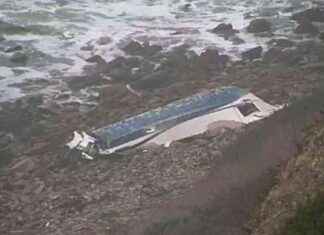The main opposition parties, including the Islamist-inspired movement Ennahdha, at the heart of power until July 2021, have called for a boycott of the ballot, which they consider “illegal” and not concerted.
The victory of the “yes” being little doubt for the experts, the main issue of the vote is therefore the attendance because it will be a test of the popularity of President Saied, an outsider elected to everyone’s surprise in 2019.
This referendum can “be the starting point for real changes since the president is implementing the policy he considers most appropriate for the good of the country”, estimates Aya Jemaï, who voted in a polling station in the center from Tunis.
Faced with the “chaotic situation” of the country, in the grip of a serious economic crisis (purchasing power in free fall, very high unemployment, rising poverty), the young girl says she is “optimistic” and confident in the action of the President to fix it.
The new fundamental law, prepared by Mr. Saied himself, establishes an ultra-presidential regime, breaking with the hybrid parliamentary system in place since 2014.
The opposition assures that this text, “tailor-made”, “legitimizes the coup d’etat” of Mr. Saied, a constitutionalist who, arguing of the ungovernability of the country, seized all the powers there is a year and has since ruled by decree the country, the cradle of the Arab Spring.
Many NGOs have criticized the lack of safeguards for freedoms and the fact that the president is not beholden to anyone, saying they fear a return to autocratic regimes, such as under Habib Bourguiba and Ben Ali before 2011.
Conversely, Mr. Saied claims to have taken over from the 2011 Revolution and to want to close the parenthesis of 10 years of inefficient and “corrupt” governments dominated by Ennahdha, his pet peeve.
“They have been in power for more than 10 years without doing anything, so they let this man work! We believe in him and we will support him until the end,” Baya, a 54-year-old voter, told AFP.
Like her, many voters do not hesitate to reveal their choice, while showing their finger stained with indelible ink, under the noses of police officers and in front of television cameras, without worrying about the rules of electoral silence. .
“By this behavior, these people want to intimidate others who reject this Constitution,” protested to AFP a furious voter, who refused to give his name.
– “New page” –
The president himself was criticized for having promoted the new Constitution on Monday morning, violating, according to his critics, the rules of neutrality in force until the end of voting operations at 9:00 p.m. GMT.
Coming to vote in Cité Ennasr, Kais Saied called for his text to be approved “to establish a new Republic based on true freedom, true justice and national dignity”.
The parties having called for a “no” vote represent a tiny minority of the electorate.
Nearly 12% of the 9.3 million voters had already voted by 12:00 GMT, a figure destined to further “increase”, according to the president of the electoral authority Farouk Bouasker.
“The turnout is not bad at all,” confirms to journalists Raouf Ben Moussa, vice-president of the Rue de Marseille polling station in the capital.
“Whoever loves Tunisia must come and vote and say yes! It’s a duty!” exclaimed Majrya Hajja, 60, in another polling station in Tunis.
Chokri who helps his septuagenarian father leaning on a cane, to vote in a primary school, does not say anything else: “we approve of all these measures that is why we have come today to say Yes to President Saied and to his decisions”.
Ridha Nefzi, a 43-year-old daily worker, votes “to change the situation in the country”. “Now begins a new page,” he assures.
The referendum does not require a quorum, which means that a simple majority is enough for it to pass.





